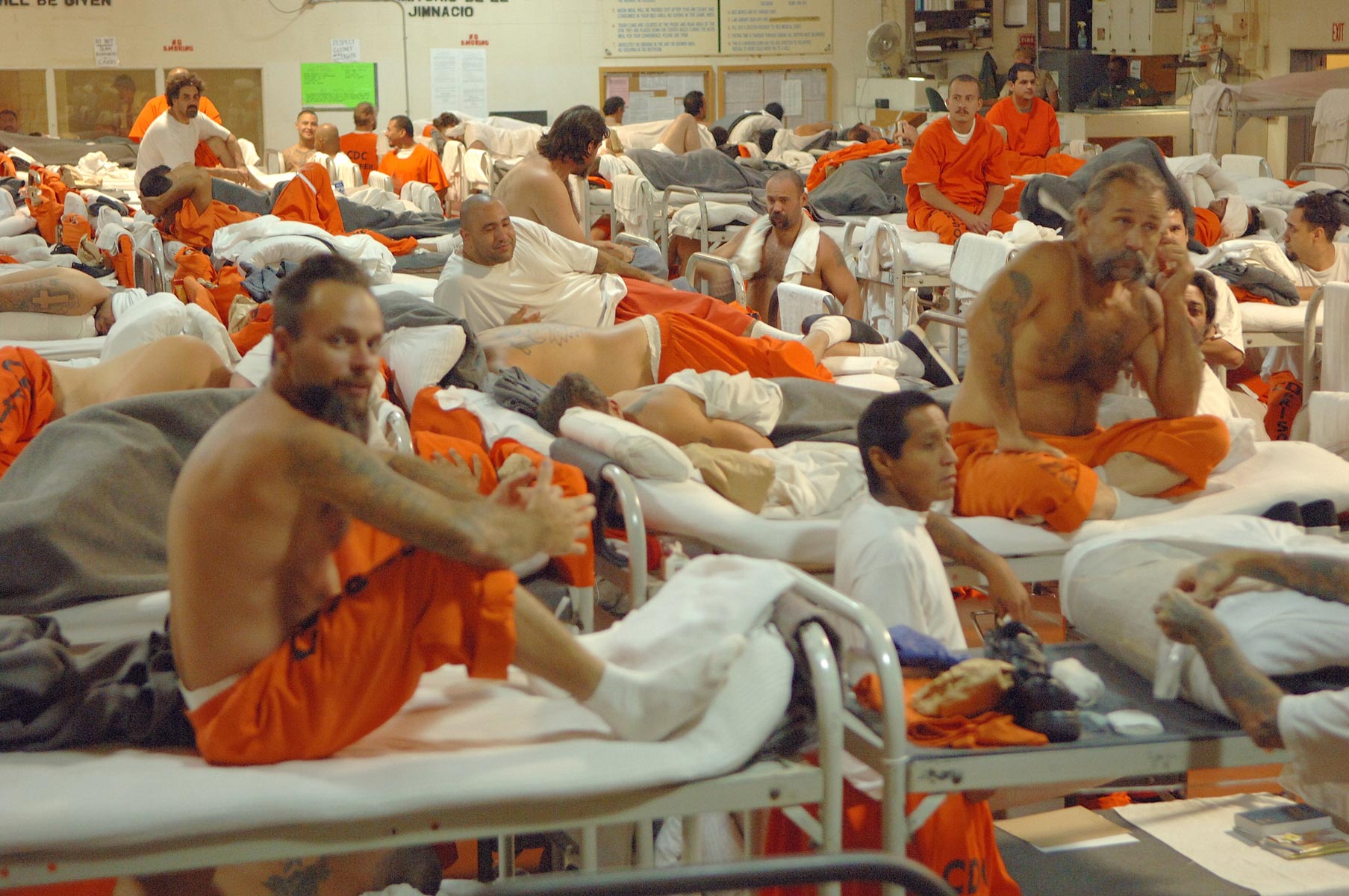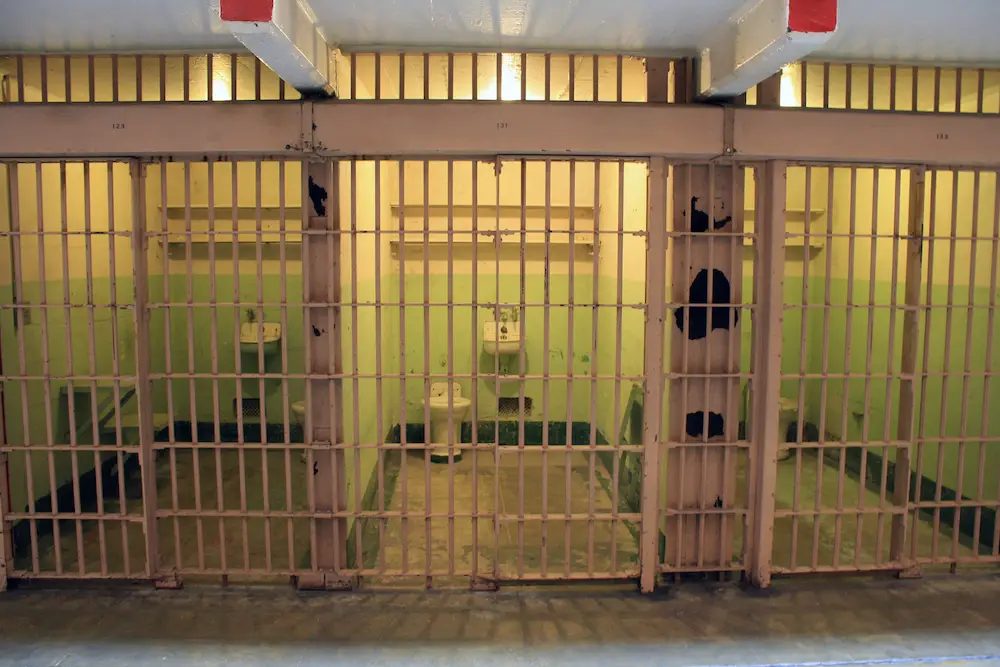The United States holds 5 percent of the world’s population, yet the country incarcerates 25 percent of the world’s prisoners. So, why is the U.S. playing judge? When United States civilians think about the country’s population, prisoners rarely come to mind. However, if they’re engrossed in a political debate about prison reformation, the costs of convicts and the criminal justice system, people fervently argue on behalf of the millions incarcerated.
When are people going to stop arguing, though? Although prisoners have time, they don’t have all day. They have jobs to work, bills to pay and children to raise, but with the country in a cycle of crazy, prison reform may take longer to achieve.
“The United States incarcerates more people than any other country in the world. With 2.2 million people behind bars and millions more on probation or parole, 1 in 35 American adults is caught up in the prison system,” says AJ Plus of “Al Jazeera.” Wow, right? The statistics are harrowing enough, but how the U.S. treats people of color, addiction and mental illness in the criminal justice system is even worse.

People of color, mainly blacks, are imprisoned more than whites. The numbers show 1,408 of 100,000 blacks are incarcerated, while only 275 of 100,000 whites are incarcerated. Even drug charges carry different sentences. Those caught with crack cocaine face five years for five grams of the stimulant, while people caught with cocaine face five years for 500 grams of the stimulant.
“Harsh drug laws are also part of the problem. The 1985 Anti-Drug Abuse Act instituted a mandatory minimum sentence of five years without parole for possession of five grams of crack. A possession of 500 grams of cocaine triggered the same sentence. [The stats are] interesting when you look at who consumes each drug more,” Dena Takruri, a senior presenter at “Al Jazeera,” says.
From birth, black men and women are burdened with the threat of prison time. Statistics show a third of the black population will grapple with the criminal justice system at least once in their lifetimes.
“Black and white people use drugs at the same rate, but black men are almost 12 times more likely than white men to go to prison on drug offenses,” Takruri reports.
While racism within the criminal justice system is debatable, there’s still a heavy presence of racial disparity, creating a noticeable difference between a race’s populations in general and in the system.
“African Americans make up 12 percent of the U.S. population but account for about 40 percent of all arrests, 50 percent of the prison population and 50 percent of the inmates on death row. More than nine percent of African-American adult males are in jail or prison or on probation or parole, compared with not quite two percent of white adult males,” according to CliffNotes.
Race can play a part in people’s convictions, and their time can do more harm than help. Prisoners can suffer from mental illnesses, and their lack of clinical care can compound their issues. A “Mental Health America” page reveals over 200 different mental illnesses people can have, so the myriad of diagnoses should have specialized regimens of treatment.
Prisoners have very few options, though.
“About half of all incarcerated people suffer mental health problems. For 10 to 25 percent of prisoners, that means serious mental illnesses, like schizophrenia or bipolar disorder. Instead of getting help, many cycle through the system over and over again,” Takruri says.
Mental illness and addiction often coincide, so convicts are trapped in an endless cycle of abuse. Even the free are still oppressed. After serving their sentences, prisoners are still caged by their past. They have limited employment opportunities, no vote and little government assistance.
André Robert Lee went to New Orleans, Louisiana, to document former convicts in their lives after their time in the Angola prison. Kenneth was imprisoned for fifteen years on drug charges, and his release presented social challenges.
“I had to adjust to coming in contact with people, learning how to socialize again,” he says.

Prisons can cultivate oppressive environments for the men and women inside, and they can develop Post Incarceration System (PICS). According to “The Addiction Web Site of Terrance T. Gorski,” the syndrome contributes to relapse in addicted and mentally ill offenders who are released from correctional institutions.
Prisoners are placed in correctional facilities to be rehabilitated, but they are at risk for “passive compliance, elimination of critical thinking and decision making, restrictions on self-expression of thoughts and feelings, traumatic experiences, institutional abuse, passive aggression, chronic headaches, developmental regression, impaired impulse control, disassociation, repressed rage and addiction.”
They’re left with the baggage of their incarceration, and the horror stories and stats beg the question: How can people reform the criminal justice system?
The reform begins in school. “New York Times” contributor Henry Xu relays his own ideas of reform. A senior in high school, Xu believes law enforcement should be accountable for their actions. The cases of police misconduct and brutality should be punishable.
“While a shift in regulations is necessary to reform police use of force, the maintenance of the status quo is heavily assisted by a general lack of accountability for situations where force is improperly used,” he says.
The U.S. is making progress, but the country is moving at a slow pace. Since the 1970s, the state prison population has grown 700 percent. The solution lies in healthy environments, like rehab centers, not cell blocks. Individuals may do their time in prison, but they’re still people, like everyone else.


















[…] even though they make up only 32% of America’s population, black people contribute to 56% of the incarcerated population, according to a 2015 report by the […]